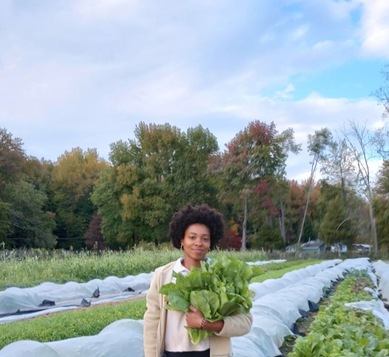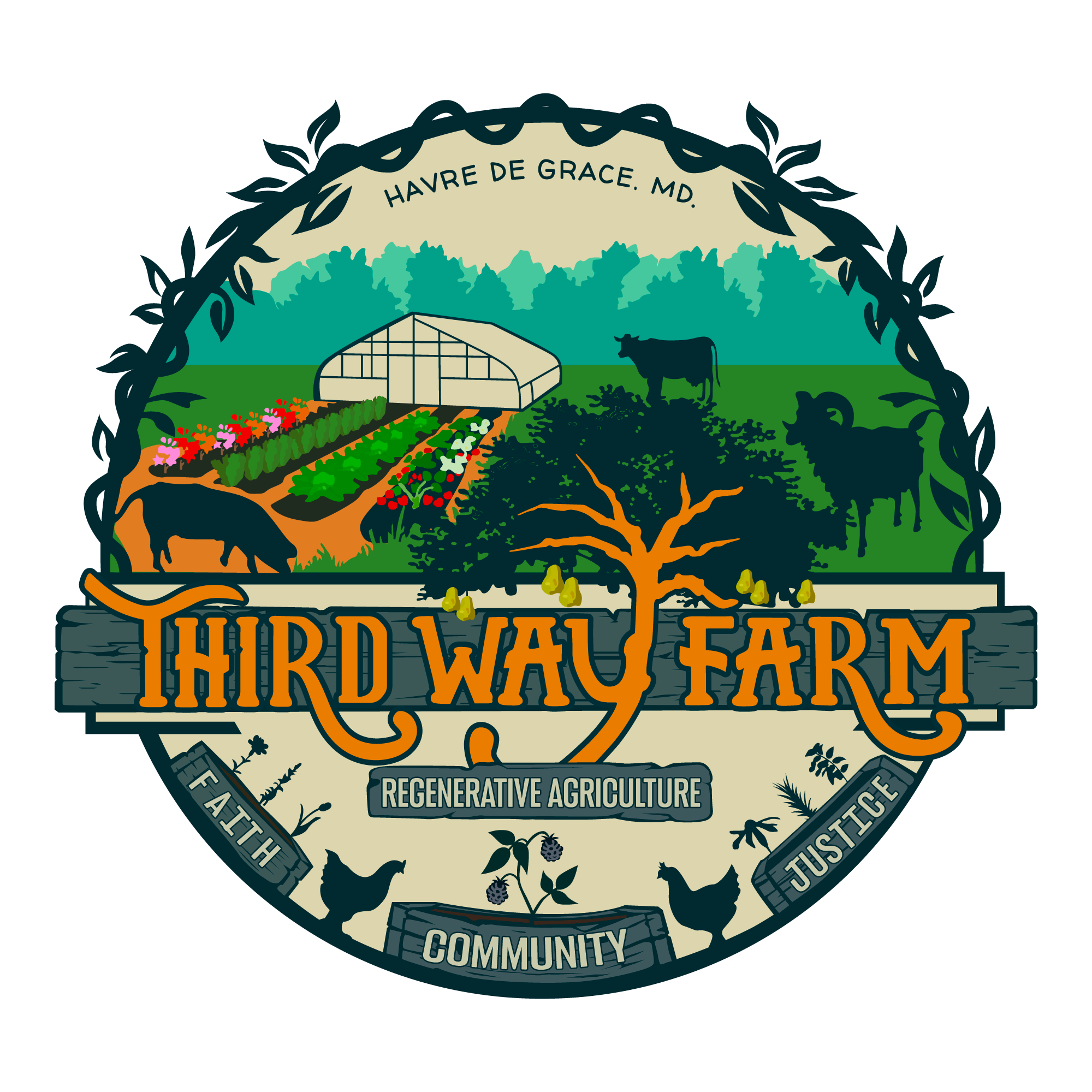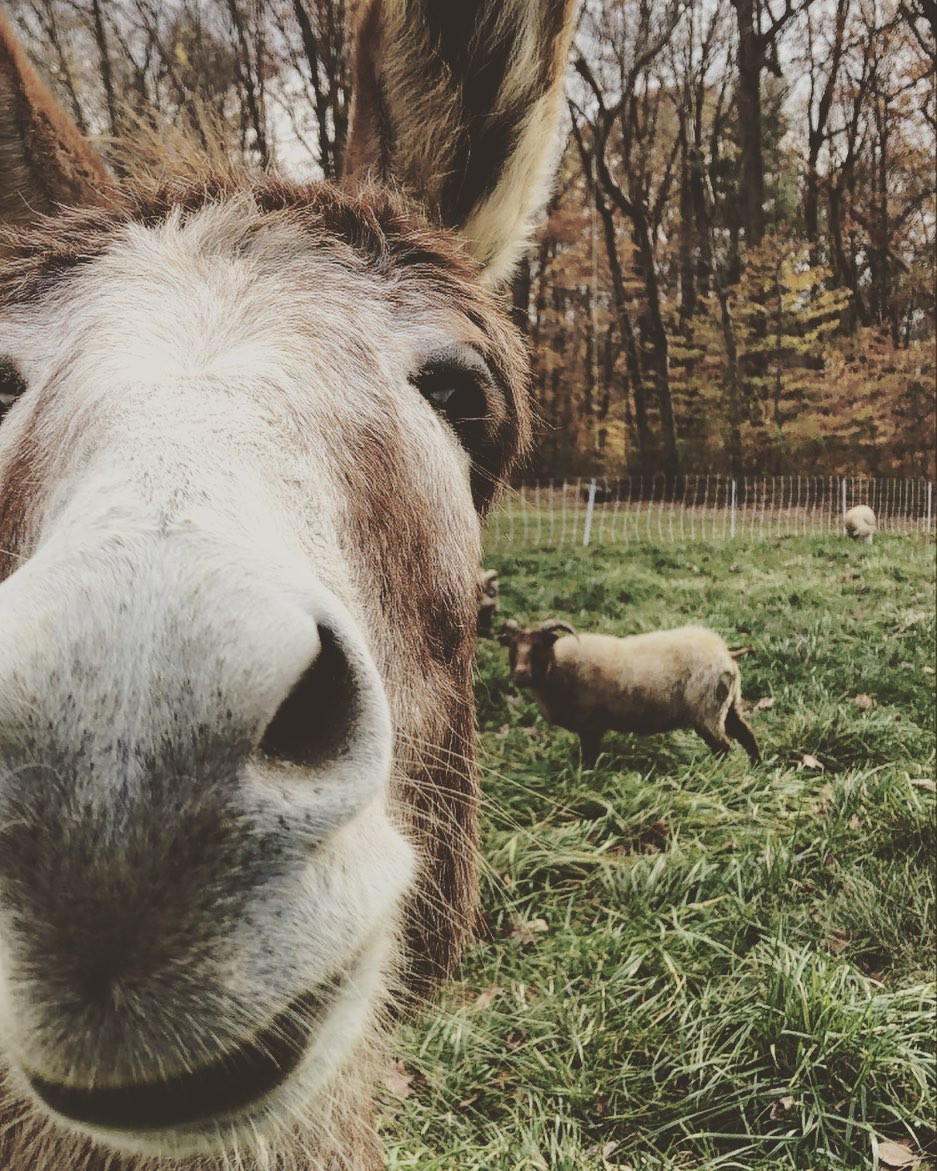A Labor of Love
posted on
November 3, 2023

A few summers ago, I spent it touring farms in the south. Farmer Clinton C. Boyd Jr. was one of the two black farmers I met on the tour. He has a beautiful property in Montgomery, Alabama, and spends his time trading produce with neighbors or donating it to food banks and organizations. His reasoning? Farming is a labor of love. He came to farming after retiring from the military. In search of deep and meaningful work, he found that he could sustain his family and community through land stewardship. I find his story deeply curious because he mentioned his passion; music. After being drafted into war, he became a 25th Infantry Division band member and the first Black Sergeant Major at the Army School of Music.


He wanted to continue pursuing music, but leaving the army meant struggling to find gig work, and struggling to find gig work meant a change of plans. I don't know that he came to farming out of passion. But I know he came to farming out of value: valuing autonomy, providing for his family and community, and hard work.
Since meeting Sergeant Boyd, I've spent much time thinking about what it means to live in my passion in addition to living in my values. I remember entertaining this conversation with a professor who said that all his passionate friends in the '60s and '70s who took to the streets in support of women's rights and black lives, protesters who were anti-war and anti-establishment, now live quiet, conservative lives as bank tellers and tax auditors. Nothing wrong with those careers! But their passion and zest for justice has fizzled, and he's found it challenging to get them involved in modern social issues. The promise they made to themselves in their 20s to stay vigilant has been followed by years of inaction.
Life post-lockdown has presented the same parallels. Awareness about the gravity of the climate emergency was at the forefront of our minds; community-supported agriculture was at an all-time high. People consumed less and cooked more. Conversations about racist policies and systemic oppression led those to take to the streets to support black lives. People crowdfunded money to help neighbors who lost jobs or lost family members. Organizations were overrun with donations and volunteers. 2020 was a time of reflection, and revolution was brewing. I would have never guessed that the years following would mean much of a return to the same old—a return to normalcy, gluttony, over-consumption, and a lack of introspection. I'm afraid our impassioned promises to one another have also proven empty.
I've found less and less that I am motivated by stories of passion. Passion is an emotion, and emotions are fleeting. Passion feels more like an identity we sell ourselves. I'm a passionate person. Living solely in an emotional trance and less in our values. And I can turn to farming to demonstrate why.
Farming these past six months has been passionate, sure, but mostly grounding. Living and working closely with other 20and30somethings meant witnessing what it looks like to live in one's deeply rooted values. 20and30somethings who are passionate, yes, but aren't chasing the sheer sense of euphoria that comes from revolution. Those who have found a revolution in everydayness, the mundane and the cyclical. I work with those who, through a love for food, a deep reverence for the earth and its people, and curiosity about better systems and better practices, have found it in themselves to be disciplined and committed. To live lives that are virtuous but not virtue-signaling. They value their community and themselves. They don't exist in search of euphoric passion, hoping to be inspired to do better; they are simply living in their better, in the now. I am surrounded by people in their 20sand30s who are doing the more challenging things. Treading through cow manure and bird poop because animals grazing on fresh pasture is just that important. 20and30somethings that can maintain hundreds of CSA shares and deliver produce to numerous restaurants. Can build relationships with elderly neighbors and lovely community members. Can sustain an every Saturday farmers market and weekend chores. With love, can split the load of weeding, planting, harvesting, composting, bed prep, deliveries, and animal care because better food systems and quality agriculture practices are just that important. I am confident that their commitment to this work- their curiosity and their discipline- will exceed every impassioned political trend. They are people who wake up each day with a deep sense of the things they value, and a desire to follow through. It's not our heightened awareness in moments of political strife that are the most important. What matters most is our follow through.
Fortunately, this time I've spent as a farmer has confirmed my suspicion: passion isn't a prerequisite for disciplined action. I can assure you that the romance of the first strawberry harvest, or the first okra harvest, is followed by itchy arms, welts, and rashes. Gorgeous heirloom tomatoes require months and months of meticulous pruning and pest resistance. Ask any farmer, and they will tell you that farming can often be uncomfortable or taxing. Cute animals on fresh pasture means rotational grazing in the rain (with wet socks and damp clothing) or the sun (even when that sunshine brings temperatures to 100 or more degrees.) Working through poor air quality, extreme heat, or cold, rainy days is often more difficult than many farmers let on. A commitment to a no-till, regenerative farm is a commitment to more work. A commitment to greater intention. And yet it’s still important that we do it anyway.
This isn’t to romanticize some sort of martyrdom or self-sacrifice. High suicide rates in the farm sector tells us otherwise. But that our commitment to a better world is often a lot less romantic than we care to admit, and it’s still important that we do it anyway. Farming has shown me that the most critical and revolutionary work is done meticulously and consistently, even if it fails. It has shown me that we are obliged to the process even when crops may one day be taken over by weeds, insects, or diseases. Farming has shown me that we are still obliged to our values even when the euphoric sense of revolution is behind us, not in front.
I'd argue that much like farming, true revolution is in the small moments. I love the phrase labor of love that farmer Boyd referenced earlier. Because farming, like any revolution, is laborious long before the love of said labor can ever be witnessed. It is laborious long before the season's first crop is actualized. I think farming has taught me to fall in love with the process just as much, if not more, than falling in love with the outcome.
I have found a true revolution in these 20and30somethings.


